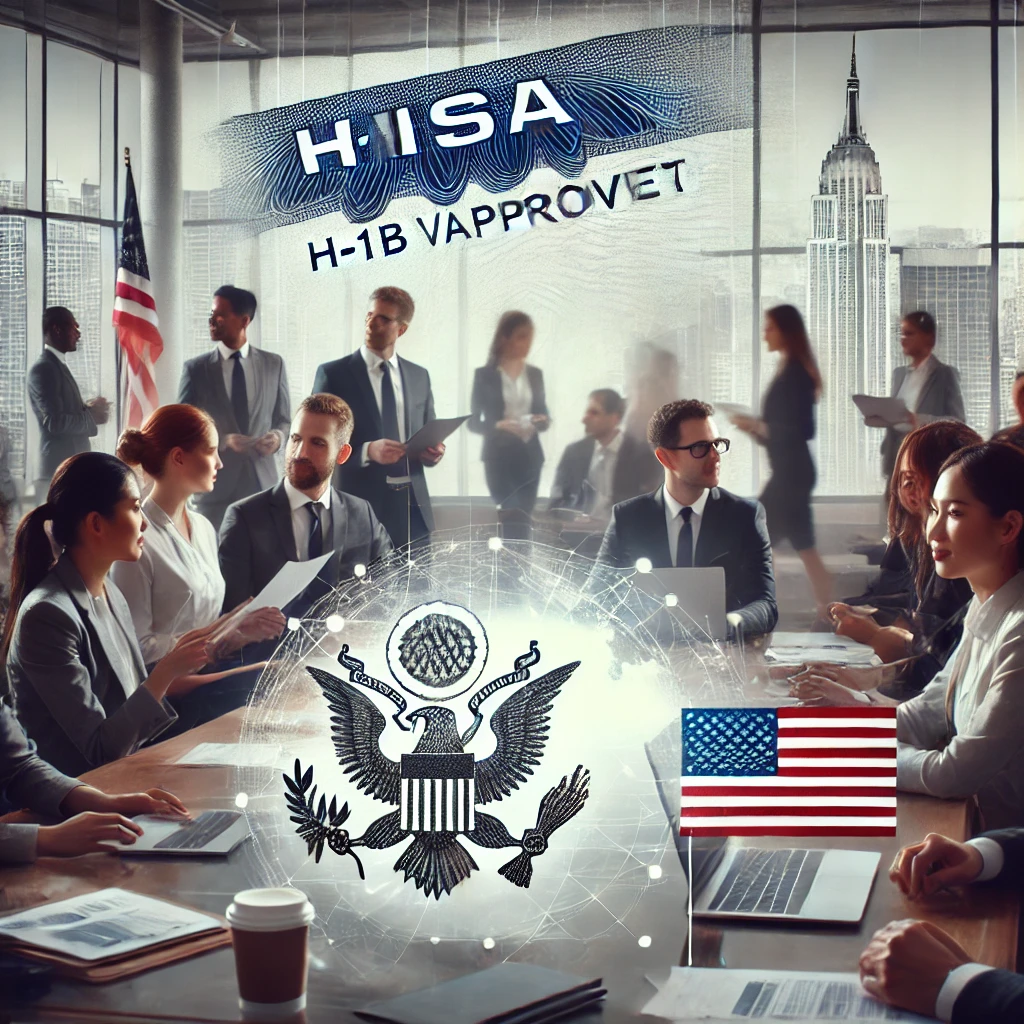The H-1B sponsorship visa is a pivotal pathway for employers in the United States to hire highly skilled foreign professionals. This non-immigrant visa allows U.S.-based companies to employ foreign workers in specialized fields such as IT, finance, engineering, healthcare, and education. In this article, we delve into the intricacies of H-1B sponsorship, addressing its requirements, application process, benefits, and potential challenges. Whether you are an employer looking to sponsor a foreign worker or a skilled professional aspiring to work in the U.S., this guide offers valuable insights to navigate the process.
What is H-1B Sponsorship?
H-1B sponsorship refers to the process by which a U.S. employer petitions the United States Citizenship and Immigration Services (USCIS) to hire a foreign worker. The sponsorship is specific to job roles requiring specialized knowledge, typically necessitating at least a bachelor’s degree or its equivalent in a relevant field.
Find An Opportunity That Fits You
Key Requirements for H-1B Sponsorship
- Job Position
- The role must qualify as a “specialty occupation” requiring specialized knowledge.
- Common fields include technology, science, engineering, and mathematics.
VISA SPONSORSHIP JOBS IN CANADA, APPLY NOW
- Employee Qualification
- The foreign worker must possess the requisite education or experience.
- A bachelor’s degree or higher is usually mandatory, though equivalent experience might suffice in certain cases.
- Employer Obligations
- The sponsoring employer must demonstrate the need for a foreign worker.
- Employers are required to comply with Department of Labor (DOL) regulations regarding wages and working conditions.
The H-1B Application Process
- Labor Condition Application (LCA)
- Employers must file an LCA with the Department of Labor.
- The LCA ensures that the foreign worker’s employment does not negatively impact U.S. workers.
- Petition Filing
- After receiving LCA certification, the employer files Form I-129 with USCIS.
- Visa Lottery
- Due to the high demand for H-1B visas, USCIS conducts a lottery system to allocate the limited number of visas available annually (85,000).
- Visa Stamping and Approval
- Once approved, the employee must obtain an H-1B visa stamp from a U.S. consulate before commencing work.
Benefits of H-1B Sponsorship
- Access to Global Talent
- Employers gain access to a diverse and highly skilled workforce.
- Career Advancement for Employees
- Provides foreign professionals with opportunities to work in leading industries.
- Dual Intent
- H-1B visas allow employees to apply for permanent residency (Green Card) while working in the U.S.
Challenges and Considerations
- Limited Visa Availability
- With a cap of 85,000 visas annually, many qualified applicants may not be selected.
- Compliance Requirements
- Employers must strictly adhere to DOL and USCIS regulations, which can be time-consuming.
- Processing Delays
- Lengthy processing times can affect project timelines for employers and employees.
- Potential for Denial
- Failure to meet eligibility criteria or errors in the application can result in denial.
How to Increase Your Chances of H-1B Approval
- Prepare Thorough Documentation
- Ensure all required documents are accurate and complete.
- Seek Professional Assistance
- Engage immigration attorneys or consultants to navigate complex procedures.
- File Early
- Early preparation and timely submission increase the likelihood of success.
- Consider Premium Processing
- USCIS offers expedited processing for an additional fee, reducing wait times significantly.
Alternatives to H-1B Sponsorship
If H-1B sponsorship is not feasible, consider the following alternatives:
- L-1 Visa
- For intra-company transferees with specialized knowledge.
- O-1 Visa
- For individuals with extraordinary ability in their field.
- OPT and STEM OPT Extensions
- For recent graduates from U.S. institutions under F-1 student status.
H-1B Sponsorship Costs
- Filing Fees
- Basic filing fee: $460
- Fraud prevention fee: $500
- Public Law 114-113 fee (for larger employers): $4,000
- Attorney Fees
- Ranges from $1,500 to $5,000 depending on the complexity.
- Premium Processing
- Optional fee of $2,500 for expedited service.
Compliance and Post-Approval Obligations
- Maintain Records
- Employers must keep detailed records of the employment terms and conditions.
- Notification Requirements
- Notify USCIS of significant changes in the employee’s job role or termination.
- Renewals and Extensions
- H-1B visas are initially granted for up to three years, with the possibility of a three-year extension.
APPLY NOW FOR DOMESTIC JOBS IN SYDNEY AUSTRALIA, GET APPROVED INSTANTLY
Additional Tips for Employers and Employees
- Stay Updated on Policy Changes
- Immigration laws and regulations can change. Regularly review USCIS and Department of Labor updates to remain compliant.
- Understand Prevailing Wage Requirements
- Employers must pay H-1B workers the prevailing wage for the role, ensuring equity and avoiding potential legal issues.
- Promote Diversity and Inclusion
- Leverage the H-1B program to enhance workplace diversity and foster innovation.
- Monitor Expiry Dates
- Ensure timely renewals to avoid gaps in employment authorization.
Conclusion
H-1B sponsorship serves as a critical bridge between U.S. employers and global talent, fostering innovation and economic growth. However, navigating the complexities of the application process requires meticulous preparation and adherence to regulatory requirements. By understanding the requirements, benefits, and challenges of H-1B sponsorship, both employers and employees can make informed decisions and enhance their chances of success.

